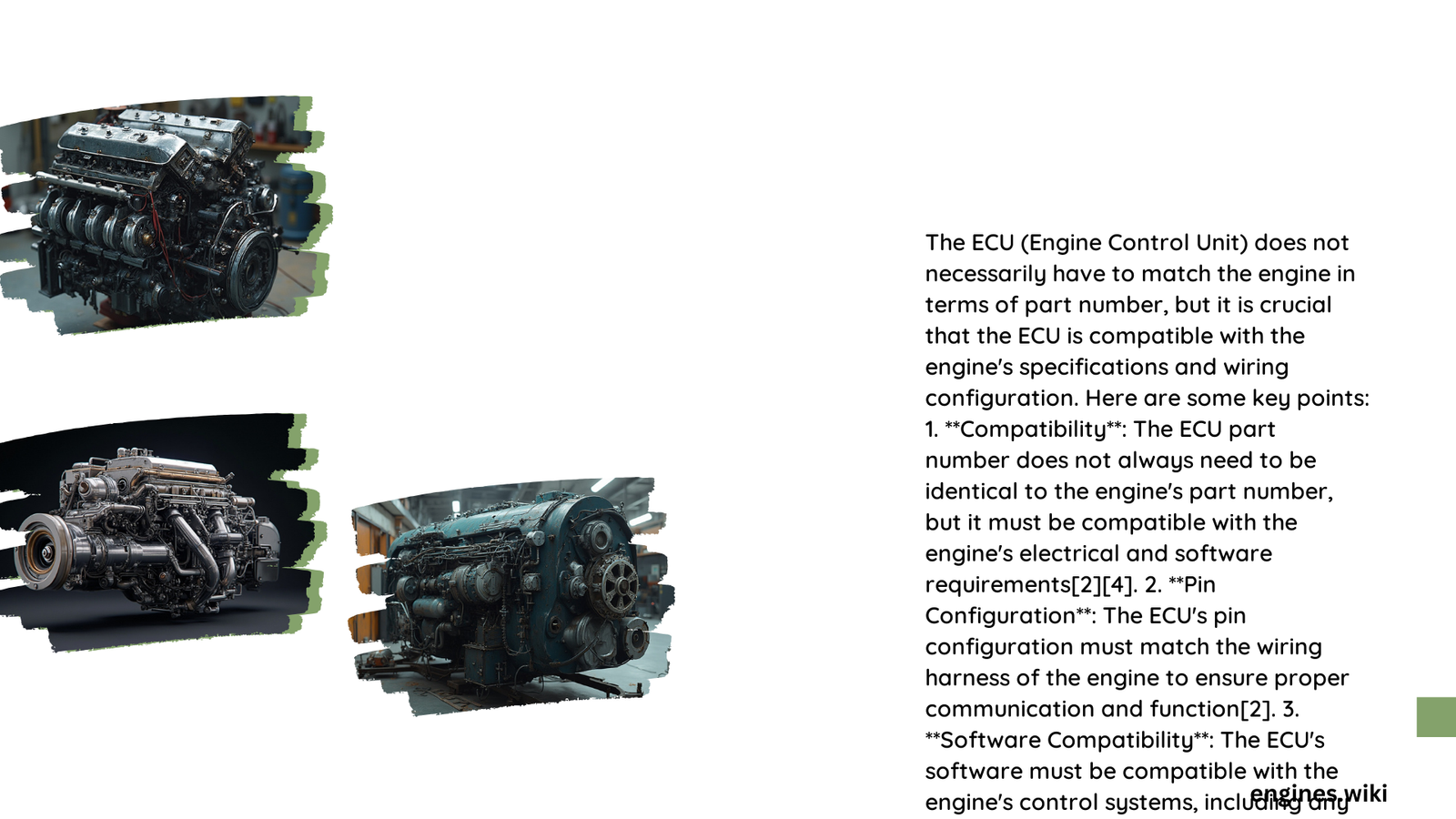When considering whether an ECU must match an engine, the answer is nuanced. While an exact model-to-model match isn’t always necessary, comprehensive compatibility across electrical, software, and mechanical parameters is crucial. Vehicle owners and mechanics must carefully evaluate communication protocols, wiring configurations, voltage specifications, and engine management requirements to ensure seamless integration and optimal performance.
What Determines ECU and Engine Compatibility?
Why Do Electrical Specifications Matter?
Electrical compatibility represents the foundational requirement for ECU and engine integration. Key considerations include:
- Voltage Range: Most automotive ECUs operate between 10-16 volts
- Current Handling Capacity: Must match engine’s electrical demands
- Signal Integrity: Precise electrical signal transmission requirements
How Critical Are Communication Protocols?
Modern vehicles rely on sophisticated communication networks:
| Protocol | Purpose | Compatibility Requirements |
|---|---|---|
| CAN Bus | Vehicle-wide communication | Matching message formats |
| LIN Bus | Subsystem communication | Consistent signal protocols |
| OBD Standards | Diagnostic interfaces | Version-specific configurations |
What Software Configurations Ensure Proper Matching?
Software compatibility involves multiple layers:
- Base Mapping
- Cylinder count matching
- Fuel injection type alignment
-
Ignition timing configurations
-
Advanced Calibration
- Performance-specific tuning
- Emissions compliance settings
- Custom parameter adjustments
Can Universal ECUs Replace Specific Engine Controllers?
Universal ECUs offer flexibility but require:
- Comprehensive wiring harness modifications
- Detailed custom configuration
- Professional tuning expertise
- Potential additional hardware interfaces
What Cost Factors Influence ECU Replacement?
Cost considerations include:
- ECU hardware: $300 – $3,000
- Custom wiring: $500 – $2,000
- Professional tuning: $500 – $1,500
- Potential additional diagnostic equipment
What Risks Exist with Mismatched ECUs?
Potential risks of improper ECU matching:
- Engine performance degradation
- Increased fuel consumption
- Potential mechanical damage
- Emissions system failures
- Complex diagnostic challenges
Practical Recommendations for ECU Selection

Steps to Ensure Proper ECU Matching
- Verify exact engine specifications
- Consult manufacturer compatibility charts
- Evaluate communication protocol requirements
- Consider professional diagnostic assessment
- Budget for potential custom configurations
When to Seek Professional Guidance?
Recommended professional consultation scenarios:
– Complex engine swaps
– Performance modifications
– Vintage vehicle restoration
– Custom automotive projects
Technical Expertise Requirements
Successful ECU matching demands:
– Advanced electrical engineering knowledge
– Understanding of automotive computer systems
– Diagnostic tool proficiency
– Detailed technical documentation comprehension
Final Considerations
While an ECU doesn’t always require an exact model match, comprehensive compatibility across electrical, software, and mechanical parameters is non-negotiable. Thorough research, professional consultation, and meticulous configuration remain essential for successful engine management system integration.
